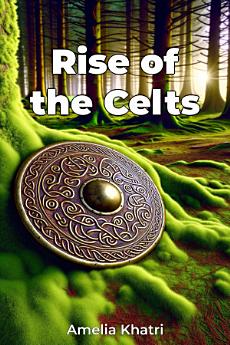Rise of the Celts
เกี่ยวกับ eBook เล่มนี้
This book emphasizes the profound influence of Celtic culture, languages, and technologies on the development of Europe, which is often underestimated in traditional historical accounts. The book highlights the Celts' decentralized structure, contrasting them with unified empires, and emphasizes their lasting legacy in areas like art and religion.
The book presents evidence from archaeology, linguistics, and historical texts to support its arguments. ""Rise of the Celts"" examines their spread across Europe, detailing interactions with other cultures, and devotes significant attention to their warrior culture, weaponry, tactics, and social organization.
Following this, it explores Celtic mythology and religious practices, examining prominent deities, rituals, and the role of the Druids. It also analyzes the factors leading to the decline of Celtic power, including Roman conquest and internal conflicts, while considering their cultural legacy.








